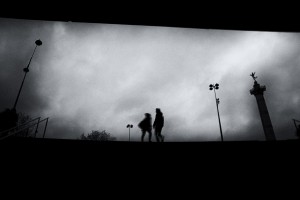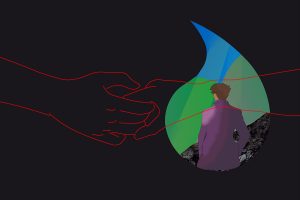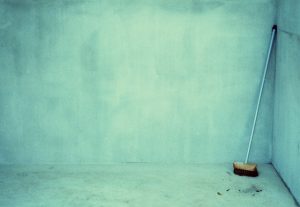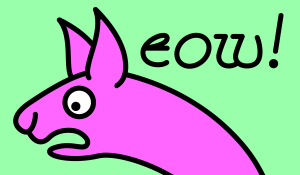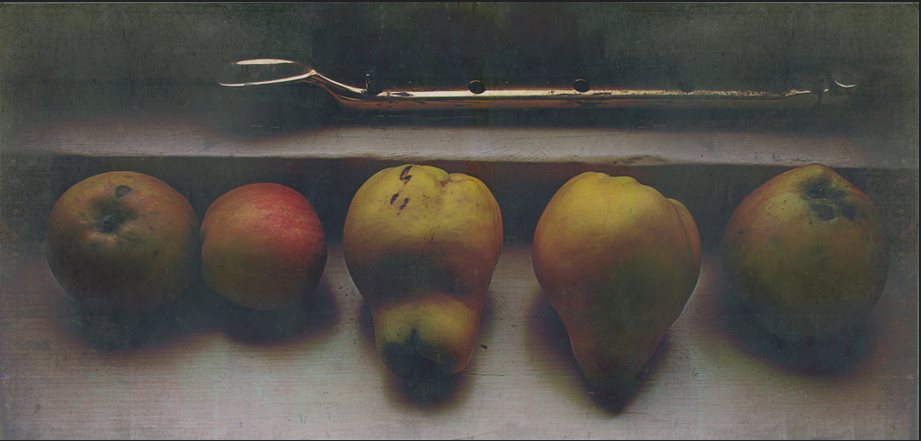
Baring My Bones
by Nancy Tucker | October 21, 2015
‘Things just feel… so bleak, somehow. So overwhelmingly, inescapably bleak,’ I mumbled, voice monotone, eyes dead. I was eighteen, but my brain and bones, ravaged by seven years of cruel anorexia and vicious bulimia, felt at least eighty. Curled like a melancholic tadpole opposite my psychologist, I suspended an Oxford offer letter from a listless hand, and professed that life felt bleak.
Three years and many deferrals later, I am only now buying fresh duvet covers and pillowcases in readiness for my first university term. ‘Things feel good today,’ I say, cautiously hopeful, to the same psychologist. ‘I haven’t cried at all today. I’ve eaten food and not thrown up today. Things feel good today.’
Between the ages of eighteen and twenty-one I have had many therapy sessions, and eaten many meals, and gained and lost many kilograms, and broken and healed in so many small, important ways that I sometimes feel my mind must be knotty with scar tissue. The biggest ‘break’? The anorexia, which gripped my prepubescent form and turned me into a jangling, jittering mass of bones, whilst my subsequent swing into bulimia saw my mental anguish swell in line with my physical size. How did I heal? Time, patience, therapy – all were helpful. But the most significant thing I did between the ages of eighteen and twenty-one was to externalise the experience that had defined my adolescence: to turn the destruction of my body into the creation of a story. Over the years, my eating disorder has made me lie, steal, abuse and torment, and the memories of my actions at twelve, fourteen, sixteen years old make me recoil in shame. And yet it is these memories that make up the bulk of The Time in Between: a memoir documenting my decade-long struggle with eating disorders, published in April of this year. My private battle made public.
I don’t remember the point at which I decided to write a book. As I had grown older, and my eating disorder had morphed from the dainty social acceptability of anorexia to the distasteful chaos of bulimia, I had begun to feel increasingly haunted by the pressure building within me – the agony of holding such a painful secret inside. Once I put pen to paper, not planning ‘to write a book’ but simply, ‘to write’, the story poured from me, and getting it out granted me the same relief as purging. Given the intense shame many eating disorder sufferers feel surrounding their food battles, sharing my struggles in such an open way might seem perverse. But, to me, the translation of terrifying, amorphous feelings into safe, concrete words was like sipping down oxygen after suffocation.
Writing Book was a way to give my story its own space: to say to the illness, ‘I accept you. You have been a hugely important part of my life. I acknowledge everything you have given and taught me’. The implicit expectation was that allowing the sickness this designated space would mean it no longer needed to occupy space within me, enabling me to move on without feeling that I was trying to minimise ‘What Had Been’. An eating disorder consumes every inch of you in its very refusal to allow you to consume anything at all, and letting it fade into memory as I recovered felt viscerally wrong. Book gave me a ‘box’ in which to put that part of my life – a David Blaine-esque, Perspex box visible but unreachable. With that box safely installed outside my body, I found myself able to contemplate – if not immediately embrace – the messy business of returning to life as a walking, talking, eating human.
There were moments when recounting the existence of my tortured anorexic self felt like an exorcism, of sorts, granting me the distance from that sad, empty person I so needed. But there were also moments – particularly when describing the rapid, terrifying weight gain resulting from my descent into bingeing and purging – which were excruciating. I felt like cockroaches were crawling under my skin; as if articulating the episodes of overeating and the flesh they packed onto my fragile frame made each kilogram quiver and squirm. I resorted to writing from the bath, risking electrocution in favour of feeling marginally less hauntingly dirty. When attempting to edit, I often fell into deep despair at my own ineptitude and wept, usually into an inexplicably complicated bowl of cereal. But tear-soaked cornflakes or not, I was fascinated by the dichotomy of reading my own words: the sense of climbing back into old thoughts and feelings, which I found no longer fitted me quite as they used to. At a remove from my eleven-, thirteen-, sixteen-year-old self, I could finally understand how her troubled actions had slotted in to the world around her.
My manuscript went through a galling submission process – tossed from one publishing house to another, none of which seemed remotely cognizant that the material they were merrily rejecting felt like my innards, printed in point 11 Calibri. It contained every inch, every corner and every crevice of me, in intimate and sometimes gory detail. They hated Book? They hated me. Even once the much-coveted Book Deal had been secured, conflicting feelings warred within me. Though my friends were giddy with excitement and began planning outfits for The Launch Party, Book occupied a more complicated space in the collective conscious of my family. My mum, though excited about my new venture, went hushed and anxious when asked if she would like to read the manuscript. My sister demanded a copy, but never opened the email attachment. Though no one objected to the story being out there – it was, after all, mine to tell – there was a general, unspoken consensus amongst my nearest and dearest: we don’t want to read about this. We lived this.
As Book made its way from my mind to My Documents to the shelves of Waterstones, I also had to contend with the reactions of real live readers. As a teenager, I had devoured first-person eating disorder accounts with all the relish I was failing to apply to school dinners, scouring the pages for the numbers – of kilograms, calories, months spent in hospital – which might allow me to preen, pronouncing myself ‘sicker than them’. The competitiveness of anorexia is sinister but inescapable. It’s this in-group rivalry which makes you glare, eyes icy with hatred, at the newest admission to your psychiatric ward, wanting to yank her collection of smug bones up from her wheelchair, rip the feeding tube from her nostril and funnel custard down her throat until she expands. Which makes you pore over the gruesome colour plates in memoirs, holding them up against your own body and melting into a puddle of failure if the author’s hip, knee or collar-bones protrude more than your own. Which makes you declare yourself, over and over, ‘not sick enough’.
Though Book is a number-and-picture-free zone, I know my words alone could be used for evil just as easily as for good. Generous Amazon reviews from ex-sufferers – ‘I will miss its reading like you miss a friend who moves away…’ – have gone some way towards soothing this neurosis, but the perception of Book as ‘triggering’ may always crouch in a troubled corner of my mind. Ultimately, I have to accept that the world is full of vulnerable people, and that vulnerable people will use whatever falls into their laps – be it a book, television programme or magazine article – to hurt themselves. It would be arrogant to credit my work with the power to dictate another’s recovery or relapse, and ignorant to suppose that, had they not read my story, their own would have been different.
My own recovery remains brittle, and this proved tricky when it came to Book’s publicity. I found that the world wanted a happy ending to my scary story, and – try as I might to gently insist that eating disorder recovery is just not like that – it was hard not to give up and say, ‘Fine. Yes. I’m better. Completely better. Deliriously, wonderfully better. Now can I please go home and throw up until I feel clean inside?’ Book has not cured me, but it has changed me. Through Book I found that, though my inner blackness could not be starved away or vomited out, it could be twisted into thousands of small, spidery letters, first on a computer screen and then on a page. I am still amazed at how much weight those pages have helped me lose. Not scale-weight, or fat-weight, or body-weight: spirit-weight. Feeling-weight. I suppose, on a most basic level, I used to be carrying around the heft of thousands of paperbacks in my belly. I don’t have that burden anymore, because those books are in shops and houses and the hands of commuters. As I say of my story within The Story itself: ‘It is out now. It is free. In a way, so am I.’
